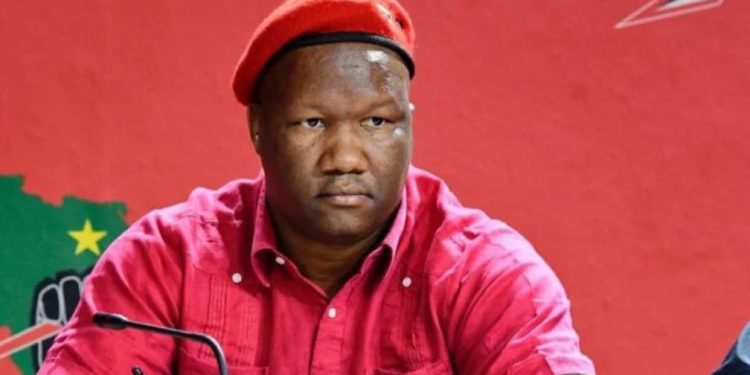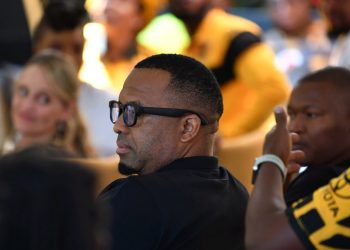- As Secretary-General of the Economic Freedom Fighters (EFF), Marshall Dlamini has maintained a low profile, rarely speaking to the media or addressing the public, in stark contrast to the party’s usual vocal style.
- Critics view Dlamini’s silence as a missed opportunity, with some calling his position ineffective. Supporters, however, argue that he contributes behind the scenes, managing logistics and administration to support EFF leader Julius Malema.
- As Dlamini’s term ends, debate continues about whether his silent role was strategic or ineffective. His successor faces expectations for a more visible and engaging approach to boost the EFF’s public influence.
As Marshall Dlamini’s term as Secretary-General (SG) of the Economic Freedom Fighters (EFF) concludes, questions arise around his low-profile role in one of South Africa’s most outspoken political movements. Dlamini, often seen at the side of EFF leader Julius Malema during press conferences, has maintained an almost complete silence throughout his tenure, avoiding media engagement and rarely addressing the public directly. This reserved approach has led many to wonder about the purpose and influence of his role within the party.
Elected to one of the highest offices in the EFF, a party known for its strong rhetoric, fiery stance on economic justice, and robust media presence, Dlamini’s term as SG has been distinct from expectations. Traditionally, the Secretary-General is a visible figure, shaping party organization, engaging with the public, and clarifying policy positions. Dlamini’s tenure, however, has remained low-profile, with his voice notably absent from the party’s public discourse.
Critics argue that his silence has turned the role into “one of the most useless positions in South African political history,” with Malema dominating the party’s public direction. They question Dlamini’s influence within the EFF, viewing him more as a “silent partner” to Malema than an active leader. This perspective points to an imbalance in the EFF’s power dynamics, where Dlamini’s silence has limited the effectiveness and visibility of his position.
Supporters, on the other hand, defend his quiet approach, describing it as a strategic division of labor. According to them, Dlamini’s focus has been on essential behind-the-scenes operations and logistics, enabling Malema to handle public representation. His back-end contributions, they argue, have been instrumental in the EFF’s growth, although his absence from public engagements has undoubtedly shaped his legacy.
With his term nearing its end, political observers are left to speculate: was Dlamini’s silence a calculated strategy or a missed opportunity? As the EFF looks towards appointing a new SG, there is rising anticipation for a leader who will take a more vocal role, engaging with the public to expand the EFF’s influence.





















